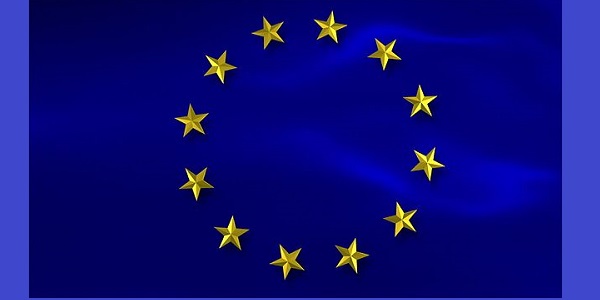 KHALED NOOR looks back over the Brexit process and provides a brief analysis of the Post-Brexit Trade Deal.
KHALED NOOR looks back over the Brexit process and provides a brief analysis of the Post-Brexit Trade Deal.
●Khaled Noor is a Barrister (N/P) and Solicitor. He is also a columnist, campaigner, and a Councillor in the London Borough of Redbridge.
The European Union (EU) Referendum took place in the United Kingdom and Gibraltar on 23rd June 2016. The UK voted to leave the EU by 52% (17,410,742 votes) to 48% (16,141,241 votes). In England and Wales, “Leave” won the majority of votes (53.4% and 52.5% respectively), but in Scotland 62.0% voted to remain in the European Union.
The European Union (Notification of Withdrawal) Act 2017 came into effect on 16th March 2017. It empowered the Prime Minister (then Theresa May) to give the EU formal notice – required by Article 50 of the Treaty on The European Union (TEU) – that the UK wished to start negotiations on its withdrawal from the EU European Union – the process commonly known as Brexit.
On 29th March 2017, the UK invoked Article 50 of the TEU to withdraw from the European Union (EU). The UK formally left the European Union on 31st January 2020, after 47 years of membership.
The Brexit transition period started on 1st February 2020 and continued until 31st December 2020. During this period, the UK aimed to negotiate and sign a trade agreement with the EU. After the transition period, EU laws, including the free movement of people, will come to an end.
Post-Brexit Trade Deal
On 24th December 2020, a post-Brexit trade deal was agreed, and on 26th December 2020 the Government published the Trade And Co-operation Agreement – with a Summary Explainer of 34 pages but stretching in full (including Annexes and Protocols) to 1,246 pages. MPs were due to vote on the deal on 30th December, with the Agreement expected to be passed.
It should be noted here that regardless of whether a deal has been ratified, the UK will leave the EU customs union and single market on 31st December at 11pm UK time, when the transition period will legally expire. If the deal is ratified, the new trading arrangements will come into force on 1st January 2021.
In his forward to the Summary Explainer, Prime Minister Boris Johnson stated that these “Agreements are designed to honour the instruction of the British people – expressed in the referendum of 2016 and the general election last year – to take back control of our laws, borders, money, trade and fisheries.”
Here is a summary of the key provisions and terms of the UK-EU Trade And Co-operation Agreement as published by 10 Downing Street.
Sovereign nation
Common provisions “reaffirm the independence of the two parties and remove any ambiguity about the UK’s status as a sovereign nation.” This means that “the UK will fully recover its national independence.” British laws will be made solely by the British Parliament and interpreted by UK judges sitting in UK courts.
Jurisdiction of the European Court of Justice
The Agreement is based on international law, not EU law – so there is no role for the European Court of Justice and no requirement for the UK to continue following EU law. The jurisdiction of the European Court of Justice will come to an end. The Agreement includes dispute resolution mechanisms that are appropriate for a relationship between sovereign equals.
The EU customs union and single market
At 11pm on 31st December 2020, the UK will leave the EU customs union and single market, and if a deal is ratified the new trading arrangements will come into force on 1st January 2021 (agreements which are outside the customs union and the single market). The Agreement establishes zero tariffs and zero quotas on trade between the UK and the EU, where goods meet the relevant rules of origin. There will be no non-tariff barriers to trade.
Points-based immigration system
A new, points-based immigration system will come into force on 1st January 2021. (It should be noted here that EU, EEA or Swiss citizens, and their family members, can apply to the EU Settlement Scheme to continue living in the UK after 30th June 2021. The deadline for applying for the EU Settlement Scheme is 30th June 2021, but applicants must have started living in the UK by 31st December 2020.)
Short-term visitors visas
For the purpose of business mobility, the Agreement includes arrangements for short-term travel for business visitors, who may travel to the EU for 90 days in any 180-day month period. It does not “impose work permits on business visitors for establishment purposes.” The Agreement confirms that the UK will treat the EU as a block for short-term visitor visas, but this provision will not apply to future Member States unless the UK agrees to do so.
Recognition of qualifications and legal services
The UK and the EU have agreed a framework for the recognition of qualifications between the parties which is based on the EU’s recent free trade agreements. “The Agreement will give UK solicitors, barristers and advocates the right to advise their clients across the EU on UK and public international law using their home professional titles, except where EU Member States have placed specific limits on this activity.”
Free flow of capital and payments for goods
The UK and EU have agreed commitments on the free flow of capital and payments for goods and services to facilitate trade and investment.
Renewable energy and climate
The UK and EU have agreed to enhance co-operation on renewable energy from sources which include the North Sea. The Agreement includes reciprocal commitments not to reduce the level of environmental or climate protection or to fail to enforce its laws in a manner that has an effect on trade.
Workers’ rights
“The Agreement includes reciprocal commitments not to reduce the level of protection for workers or fail to enforce employment rights in a manner that has an effect on trade.”
Fisheries
The Agreement provides a framework for the future relationship on matters relating to fisheries. It reflects the UK’s departure from the EU Common Fisheries Policy and its new identity as a sovereign, independent, coastal state with the right to manage the resources in its waters. New quota arrangements will be phased in over five years to allow the respective fleets time to adapt to the changed opportunities. There will be also be an adjustment period for access to waters which provide stable access for five and a half years.
Money Laundering
The Agreement commits the UK and EU to support international efforts to prevent and fight against money laundering and terrorist financing, exchange relevant information, and maintain comprehensive anti-money laundering and counter-terrorist financing regimes.
Status of Gibraltar
The UK, Gibraltar and Spain will continue to negotiate arrangements to seek the best possible outcome for the people of Gibraltar and the surrounding region.
National Security and related issues
The Agreement provides for the fast and effective exchange of criminal records data between the UK and individual EU Member States, recognising that this is important for investigations, prosecutions and sentencing – as well as for wider community safety. It provides transfers of Passenger Name Record (PNR) data from the EU to the UK to be used to protect the public from terrorism and serious crime.
Exceptions
The exceptions provide that existing national security practices are not affected by the terms of the trade agreement. There is also an exception which protects legitimate domestic taxation policy.
Finally, there is a general exception which allows for UK action in a list of areas, such as the protection of public security or public morals to maintain public order, as well as taking measures necessary to protect human, animal or plant life and health. The Agreement ensures that each party will have in place its own independent system of subsidy control, and that neither party is bound to follow the rules of the other.
The UK and the European Atomic Energy Community (Euratom) has agreed a separate Nuclear Co-operation Agreement (NCA) – a legal underpinning to civil nuclear co-operation. The parties have also negotiated an Agreement on Security Procedures for Exchanging and Protecting Classified Information. This will supplement the Trade and Co-operation Agreement and facilitate the voluntary exchange of classified information.
●For further detailed information, please go to:
TCA summary
EU-UK Trade and Co-operation Agreement, 24.12.20
●To read more stories about Brexit, go to:
Brexit
 East London News A Force for the community…
East London News A Force for the community…




